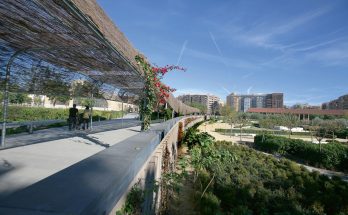By Libera Lang
Although the growth of San Miguel is inevitable, «we cannot continue to lose the quality of life.» This was said by a close friend, Enrique Orvañanos, on a certain occasion when we were talking about how to deal with unsustainable growth. Convinced that, without a doubt, the collection of rainwater and the protection of conservation areas are the solutions to water quality and distribution problems in the municipality, he recognized that there are vested interests that prevent this from being achieved . «But also common sense, the media and social networks allow us citizens to express ourselves in a purposeful way.»
Orvañanos is a real estate developer and I originally met him as a member of the Rotary Club of the Mid-Day. “I find it unacceptable that construction permits are illegally provided in areas not suitable for urban development. There are areas on the outskirts of the city that can be perfectly developed because they are neither for agriculture nor for conservation. Yes, it can be built in an ecologically sustainable way because we have the resources and the technologies. This also implies respect by the authorities for development plans.”
We commented on that occasion that permits and regulations create enormous corruption that makes construction difficult. «Today we need specific laws that force builders to use eco-technologies such as rainwater infiltration, rainwater capture systems, biodigesters and dry toilets.»
Among the developers there are two aspects. Orvañanos explained to me that the typical approach of making the most of the land, with maximum density and zero quality of life, persists. But also the most valuable properties are those that respect green areas and promote a sustainable and sustainable quality of life. «This should be the prevailing trend but there is still the vocation to withdraw money.»
As a member of the Orvañanos Rotary Club, he promoted the installation of rainwater systems in rural areas, however, the majority of the urban population of SMA, —he told me—, still does not understand the importance of soil restoration and how this sustains the environmental services that the upper basin provides to the city. At that time, there was already talk of how recovered soils filter rainwater into aquifers and this is the enormous challenge facing the municipality. However, for businessmen and individuals to participate in this nature restoration and conservation movement, they must first understand it. And this requires a strategic communication plan.
“I agree that active society should communicate more. What’s happening? That we are disorganized, incommunicado. If we behave like islands, we will not achieve the efficiency that we require as a mature and sustainable society”.


